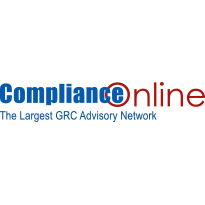Data Integrity : FDA/EU Requirements and Implementation
Suisse, Zürich
There is no doubt that data integrity is the current and future inspection focus of all regulatory heath care agencies. More than 50% inspection reports such as 483's and Warning Letters quote data integrity as deviations from GxP regulations.
This new 2-day course provides the regulatory background and guides attendees through the complete record lifecycle from data entry or acquisition through evaluation, reporting, archiving and retrieval. It also helps to fully understand not only the text but also the meaning of related regulations such as FDA's Part 11 and the EU/PICS Annex 11.
The 2-day course not only ensures a full understanding of the regulations and guidelines for raw data and other records but also provides templates and examples to develop inspection ready documentation. Interactive exercises will be dispersed into and between the presentations. About 50% of the total time will be dedicated to practical sessions. Here attendees work in small groups on case studies and prepare the answers using prepared fill-in templates. After the course a large variety of tools such as SOPs, validation examples and checklists will be readily available on a dedicated website that can be used to easily implement what they have learned in the course.
Objectives :
Additional Bonus Material for easy implementation
(all available as Web download )
- Understand what data integrity is and why it is so important for public health
- Learn why there are so many data integrity issues
- Learn about the FDA/EU/PICS/MHRA/WHO requirements for data integrity
- Understand how to define and archive raw data from hybrid systems: electronic vs. paper
- Be able to specify and validate Part 11 compliant software functionality
- Learn how to ensure and document integrity of raw data and other records according to Part 11 and Annex 11
- Understand FDA's New and ongoing Part 11 inspection and enforcement practices
- Learn how to develop and implement corrective and preventive action plans in response to inspection reports
- Learn how to avoid and/or respond to FDA inspectional observations and warning letters
- Learn how to prevent and detect data integrity issues
- 43-page primer “Electronic records, electronic signatures” (authored by Dr. Ludwig Huber)
- 10 SOPs related to data integrity, data security and validation of computer systems and data
- Checklists related to Annex 11, Part 11 and data integrity
Compliance online location :
- ComplianceOnline.com, MetricStream Inc.
- 2479 East Bayshore Road
- Suite 200
- Palo Alto, CA 94303
Registration contact :
- Name : Mohammad Irshad
- Email: Mohammad.Irshad@ComplianceOnline.Com
- Phone: +1 650-332-0381
- Fax: +1 650-565-8542
Day 1 : 08h30 AM - 04h30 PM
- 08.30 AM - 09.00 AM: Registration
- 09.00 AM: Session Start
- Day 1 – Lectures and Workshop Exercises
- Module 1:
Definitions, requirements and approaches for data integrity- Definition of data integrity: ALCOA+
- The importance of data integrity for public health
- Regulations and guidelines related to data integrity
- Main reasons for non-compliance
- Warning letter statistics by subject and countries
- FDA’s inspection and enforcement strategy of Part 11
- Lessons from recent FDA Warning Letters and how to avoid them
- Module 2:
Introduction to FDA 21 CFR Part 11 and EU/PICS Annex 11- Objective, scope, current situation and future of Part11
- Requirements for electronic records
- Requirements for electronic and digital signatures
- Additional requirements from the PICS/EU Annex 11,
- Developing a gap analysis
- Upgrading existing or purchasing new systems:
- Six steps for implementation of Part11/Annex 11
- Examples on how to implement Annex11 and Part11
- Module 3:
Cost effective Validation of software and computer systems- Selecting the right validation lifecycle model
- Going through examples of a complete computer system validation from planning to reporting
- Examples for risk based DQ, IQ, OQ and PQ
- Vendor assessment and supplier agreements
- Validation of existing systems
- Maintaining the validated state: Revalidation vs. periodic review
- Recommendation for network qualification and cloud Computing
- Module 4:
Aligning data integrity with the company’s quality system and Code of Conduct- Contributions to poor quality
- Consequences of poor quality systems
- Recommendations from the FDA
- ICH Q10 – The quality system for pharma industry
- Aligning key requirements with data integrity: e.g., CAPA system, training, internal, audits, risk management and ongoing improvements
- How a Code of Conduct helps to ensure data integrity
- Definition and contents of a related Code of Conduct
Day 2 : 08h30 AM - 04h30 PM
- Day 2 - Lectures and Workshop Exercises
- Module 5:
Definition and Handling of Raw Data- Definition of Raw Data
- Examples of raw data
- Raw data for paper based and electronic systems
- Criteria for electronic raw data with paper print-outs
- Raw data management along the data lifecycle
- Changing of raw data
- Archiving of raw data from electronic and hybrid systems
- Going through examples
- Module 6:
Good documentation practices to ensure data integrity- Requirements for documentation ( ALCOA+)
- Documents that must be readily available
- Examples for good and bad documentation
- Good practices for paper and electronic data
- How to avoid common documentation mistakes
- The importance of global documentation
- Improving effectiveness through standardization
- Module 7:
Strategies to detect and avoid integrity issues- Recruit, train and retain employees who will be responsible for ensuring data integrity
- Possible causes for data integrity breaches
- Show consequences of data integrity violations
- Understand system vulnerabilities, motivation and likelihood operators might compromise data
- Understand high risks in the data lifecycle
- Formally investigate internal hints about data falsification
- Learning from internal audits and FDA inspections
- Module 8:
Data Integrity Auditing: Internal audits and FDA inspections- Going through a typical FDA inspection as a model for internal audit
- FDA’s new approaches to data integrity inspections
- Typical audit questions
- Identifying systems that must be audited based on risk
- Typical audit findings
- The importance of the exit meeting
- Writing a corrective and preventive action plan to fix data integrity audit findings
- Follow-up on CAPA through verifying effectivess
Résumé
- Chairman, presenter and panel discussion member at US-FDA Industry Training sessions and conferences
- Served as team member of PDA's task forces "21 CFR Part 11", of US-FDA internal documents, and of the GAMP® special interest group on Laboratory Systems.
- Presenter of the Year of the Institute for Validation and Technology
- Director and chief editor of www.labcompliance.com, the global on-line resource for validation and compliance issues for laboratories.
- Author of the books “Validation and Qualification in Analytical Laboratories, and "Validation of Computerized Analytical and Networked Systems"
For more information, visit www.ludwig-huber.com/qualification

